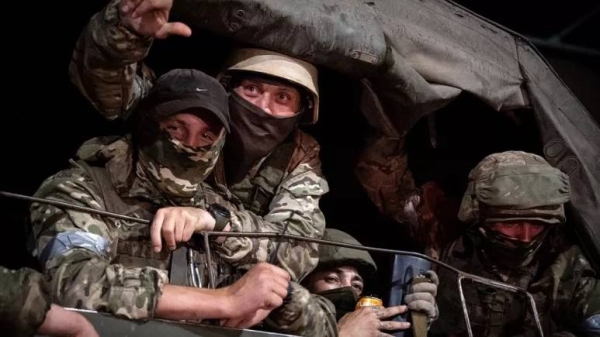
VILNIUS (Reuters) - Exiled Belarus opposition leader Sviatlana Tsikhanouskaya said on Thursday that the Organization for Security and Co-operation in Europe and the United Nations were ready to mediate in any negotiations with the government on a new election.
She said talks could begin in May, with a view to holding an election in the autumn.
However, there was no immediate comment from the OSCE or the United Nations, or from the Minsk government, as President Alexander Lukashenko called on Thursday for tougher punishments against protesters who have challenged his legitimacy.
In a pre-recorded video statement released on Thursday from the Lithuanian capital Vilnius, Tsikhanouskaya said the international bodies were “ready to organise a platform and act as mediators, as well as to force the regime to negotiate”.
The statement appeared to be an attempt to rekindle the anger that brought tens of thousands onto the streets after August’s presidential election, which Lukashenko said he had won but Tsikhanouskaya’s supporters say was stolen from her.
The protests dwindled over the winter and Lukashenko, who refused to step down despite new Western sanctions, has so far weathered what has been the biggest challenge to him in his 27 years in power, helped by Moscow, which sees Belarus as a buffer against the European Union and NATO.
Thousands of protesters have been rounded up and nearly all opposition figures have been driven into exile or jailed.
Tsikhanouskaya, who fled to Lithuania, said on Thursday that only protests could force the authorities to sit down with her, and launched an online petition for Belarusians to demand that the government negotiate the terms of a new election.
But Lukashenko on Thursday told his government to toughen the punishments for protesters.
“Our special services say that we will not be allowed to live in peace. This means that you need to be ready for any manifestations of destructive activity: from calls for illegal strikes to manipulation of minds through the internet,” he said, in remarks reported by the state news agency, Belta.
Lukashenko’s spokeswoman had no immediate comment on Tsikhanouskaya’s statement.
Over the past month, three journalists who covered the protests have been sentenced to between six months and two years in prison, and a protester has been jailed for 10 years, all on charges that the opposition says were trumped up.
United Nations human rights chief Michelle Bachelet said on Feb. 25 that there was a “human rights crisis of unprecedented dimension” in Belarus.
She said 246 people had been sentenced to jail on politically-motivated charges as of Feb. 9.












